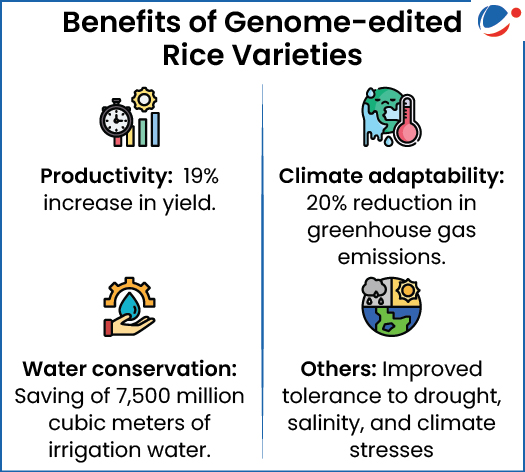Indian Council of Agricultural Research (ICAR) has developed India’s first genome-edited rice varieties named as DRR Rice 100 (Kamla) and Pusa DST Rice.
- These new varieties were developed using Genome editing technology based on CRISPR-Cas, which makes precise changes in the organism's genetic material without adding foreign DNA.
- Genome editing of Site Directed Nuclease 1 (SDN1) and SDN 2 types of genes has been approved under India's biosafety regulations for general crops.
- ICAR developed these verities with the support of the National Agricultural Science Fund (NASF).
- NASF supports basic and strategic research in agriculture.

About Genome-edited Rice Varieties
- DRR Dhan 100 Kamala
- Developed by ICAR–IIRR(Indian Institute of Rice Research ),Hyderabad.
- It is improvement of ‘Samba Mahsuri’ by targeting the CKX2 (Cytokinin Oxidase 2) gene.
- A cytokinin is a plant hormone that influences growth and the stimulation of cell division.
- Pusa DST Rice 1
- Developed by ICAR-Indian Agricultural Research Institute (IARI), New Delhi.
- This variety is an improved version of the fine-grain rice MTU1010 (Cottondora Sannalu).
About Site Directed Nuclease (SDN)
|




